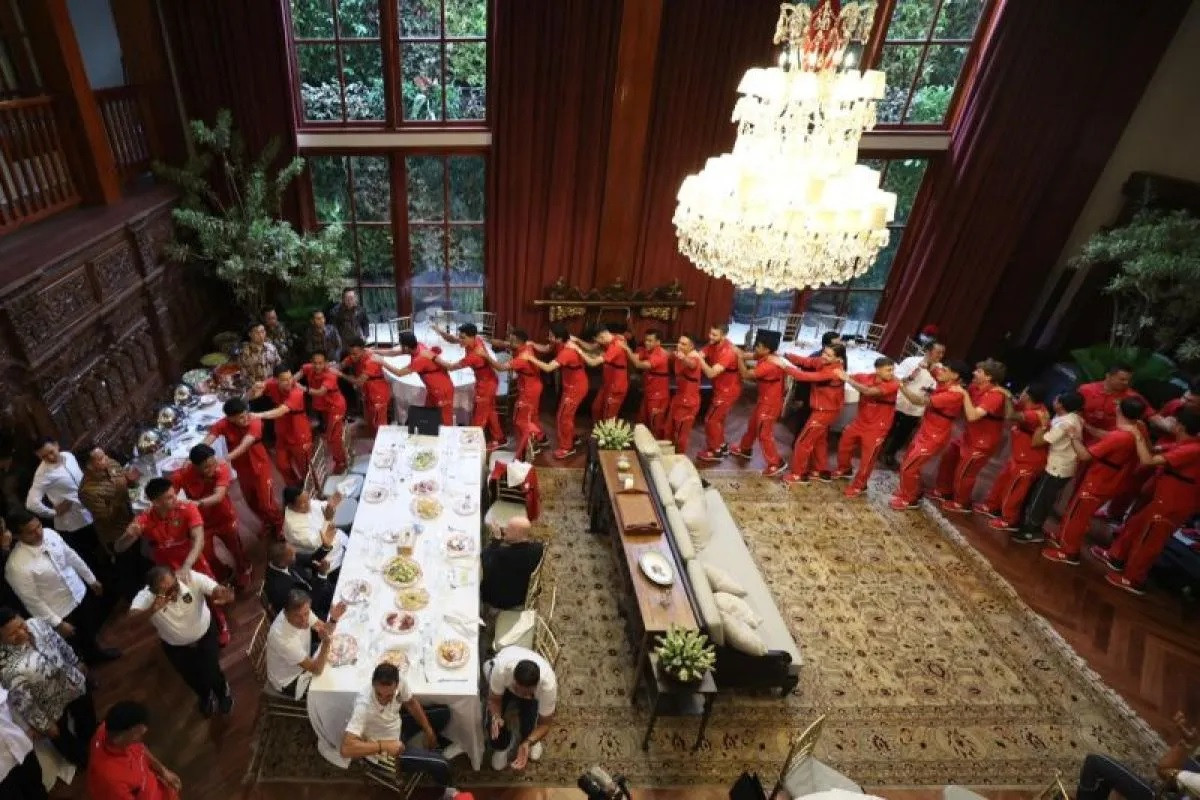Popular Reads
Top Results
Can't find what you're looking for?
View all search resultsPopular Reads
Top Results
Can't find what you're looking for?
View all search resultsAchievement vs. popularity
Indonesia still faces a daunting challenge to qualify for the World Cup, and questions arose about whether the team's reward was premature.
Change text size
Gift Premium Articles
to Anyone
T
here’s no denying that soccer is the most popular and passionately supported sport in the country. It captures national pride like no other, with emotions running high every time the Garuda squad plays.
Patriotism and unwavering loyalty are on full display, especially when the men’s national team is competing. Yet, while this level of support is admirable, it is important to ensure such enthusiasm for one sport does not overshadow fairness across all disciplines.
Over the past two weeks, the national spotlight has been fixed on Indonesia’s pursuit of a 2026 FIFA World Cup spot, which would be historic if achieved.
On June 5, the team secured a dramatic 1-0 win over China in a crucial third-round AFC qualifying match. Forward Ole Romeny, a Dutch-born player of Indonesian descent, converted a penalty in first-half stoppage time, sending the packed Gelora Bung Karno Stadium and the entire nation into celebration.
The result confirmed Indonesia’s place in the fourth-round qualifiers, edging the team closer to its dream World Cup appearance. It was a significant moment, considering Indonesia's only participation in the finals came in 1938 when it competed as the Dutch East Indies.
Joining the chorus of celebration, President Prabowo Subianto hosted a lunch with the team and their Dutch head coach Patrick Kluivert at his residence. The event was warm and symbolic, but what made headlines was the President’s personal gift to each player: a Rolex watch worth hundreds of millions of rupiah.
While many viewed it as a gesture of generosity, the reward quickly sparked controversy.
First, the extravagant gift came as Indonesia navigates economic pressures, with the government focused on fiscal prudence amid global uncertainties. Prabowo himself has introduced austerity measures, which saw ministries and government agencies cut spending.
Second, the ultimate goal of the national soccer team, banking on naturalized players, has not yet been achieved. Indonesia still faces a daunting challenge to qualify for the World Cup, and questions arose about whether the reward was premature after the team suffered a 6-0 thrashing from Japan on June 10. Though the loss did not affect qualification for the next stage, it served as a stark reminder of the competitive gap Indonesia must fill.
In the fourth playoff round slated for October, Indonesia will face tough opposition from Saudi Arabia, Qatar, Iraq, the United Arab Emirates and Oman, with only two World Cup slots available. FIFA has appointed Saudi Arabia and Qatar as the hosts of the playoff matches, giving them an edge in the race for the World Cup positions.
Finally, the luxury watches have raised concerns about fairness in how the state acknowledges athletic achievements. Indonesia has long been a powerhouse in sports other than soccer, with disciplines like badminton, weightlifting, wushu and sport climbing consistently producing world and Olympic champions.
Athletes such as Tontowi Ahmad, Liliyana Natsir, Rahmat Erwin Abdullah, Lindswell Kwok and Veddriq Leonardo have brought immense international pride to Indonesia. However, they typically receive their deserved rewards only after winning medals at the highest level.
This disparity became more pronounced when the Youth and Sports Ministry dispersed junior wushu athletes from their national training after the sport was dropped from the 2025 Asian Youth Games.
Sports Minister Dito Ariotedjo clarified that the young wushu athletes would now focus on the Olympic Youth Games next year.
On her Instagram, former world wushu champion Lindswell questioned the government's equity, saying, “Of course, proud of fellow athletes’ achievements. But has the government been fair in supporting its athletes?”
Lindswell also highlighted budget disparities, noting soccer’s development program receives Rp 200 billion (US$12.28 million) this year, while other sports federations receive between Rp 10 billion and Rp 30 billion.
At its core, sport is about fair competition and respect. While popularity can fuel national pride, true sporting achievement, regardless of the discipline, deserves equitable acknowledgement and support.











